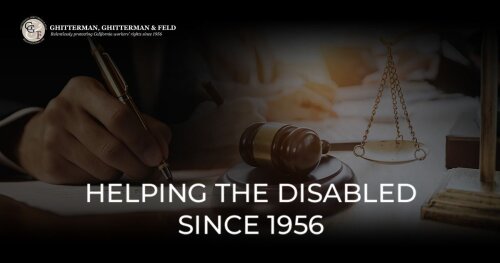Best Insurance Defense Lawyers in Vermont
Share your needs with us, get contacted by law firms.
Free. Takes 2 min.
Or refine your search by selecting a city:
List of the best lawyers in Vermont, United States
About Insurance Defense Law in Vermont, United States
Insurance defense law in Vermont involves representing insurance companies and their policyholders in a wide range of claims and lawsuits. This area of law is primarily centered on defending clients involved in civil litigation that can include automobile accidents, property damage, personal injury, professional liability, wrongful death, and workers' compensation. Insurance defense attorneys provide counsel and defense strategies to ensure that all parties adhere to policy terms and that insurers fulfill their obligations while also protecting against fraudulent or excessive claims.
Why You May Need a Lawyer
Insurance defense attorneys are often engaged in several common situations:
- When an individual or business is sued and their insurance policy may provide coverage or defense benefits.
- When insurance companies are confronted with potentially fraudulent or suspicious claims.
- In cases involving disputes about the extent of coverage or policy interpretation.
- To represent policyholders or insurance companies in settlement negotiations or trials.
- When defending against claims of negligence, professional malpractice, or liability.
- To provide legal guidance during investigations to ensure compliance with Vermont law and prevent exposure to unnecessary risk or penalties.
Having qualified legal representation helps ensure that the rights of insurers and their policyholders are protected throughout the claims process and any subsequent litigation.
Local Laws Overview
Vermont has specific statutes and legal precedents that are important in insurance defense cases. Some key aspects include:
- Comparative Fault: Vermont uses a modified comparative fault system. Plaintiffs can recover damages as long as their fault does not exceed 50 percent, but their recovery will be reduced by their percentage of fault.
- Statutes of Limitations: There are set timeframes within which civil actions must be filed, such as three years for personal injury claims and generally three or six years for property damage, depending on the case type.
- Unfair Claims Settlement Practices Act: Vermont law requires insurers to handle claims in good faith and prohibits unfair or deceptive acts in claim settlements.
- Direct Action Laws: Generally, Vermont does not allow direct lawsuits by injured parties against insurance companies, except in specific circumstances.
- Mandatory Insurance: Vermont drivers and businesses must maintain certain levels of liability insurance, making insurance disputes and defense common.
These state-specific laws make it vital to consult professionals familiar with Vermont's legal environment for insurance defense matters.
Frequently Asked Questions
What is insurance defense law?
Insurance defense law involves representing insurance companies and their insured clients in lawsuits and claims related to insurance policies. Defense attorneys work to resolve disputes and minimize liability.
Who typically hires insurance defense lawyers?
Insurance companies, businesses with liability insurance, property owners, professionals with malpractice coverage, and sometimes policyholders themselves might hire or be represented by insurance defense lawyers.
What types of cases do insurance defense lawyers handle in Vermont?
They handle cases concerning automobile accidents, property damage, personal injury, workers' compensation, premises liability, professional liability, and coverage disputes.
Are there specific Vermont laws I should be aware of when dealing with insurance defense?
Yes, Vermont's comparative fault rules, statutes of limitation, requirements for minimum insurance coverage, and good faith claims settlement laws are especially important.
What should I do if I am being sued and I think my insurance should cover it?
Notify your insurance company immediately. The insurer will review your policy and may provide a defense attorney to represent you, depending on the policy's terms.
How do Vermont courts interpret insurance policies?
Vermont courts generally interpret insurance policies based on their plain language, favoring coverage when policy language is ambiguous but upholding clear limits and exclusions.
Can an insurance defense lawyer help with settling a claim before it goes to court?
Yes, many claims are settled out of court. Insurance defense attorneys often negotiate settlements to resolve disputes quickly and efficiently.
What rights do policyholders have in Vermont?
Policyholders are entitled to a defense if their policy covers the event in question and must be treated fairly and in good faith during claims handling.
What happens if an insurer is accused of handling a claim in bad faith?
Vermont law provides remedies to policyholders if their insurer does not handle claims fairly, including the possibility of suing for damages beyond the original claim amount.
How can I find a qualified insurance defense attorney in Vermont?
You can start by contacting the Vermont Bar Association, seeking referrals from colleagues, or consulting with insurers who work with reputable defense counsel.
Additional Resources
If you require more information or wish to contact organizations involved with insurance law in Vermont, consider the following:
- Vermont Department of Financial Regulation - Insurance Division: Regulates insurance companies and ensures compliance with state insurance laws.
- Vermont Bar Association: Provides lawyer referrals and practice area information.
- National Association of Insurance Commissioners: For broader resources on insurance regulation.
- Vermont Legal Aid: Offers guidance for those with legal questions, including coverage disputes.
- Local law libraries and county bar associations for access to legal materials and further research assistance.
Next Steps
If you believe you need assistance with an insurance defense matter in Vermont, you should:
- Carefully review your insurance policy and any related legal documents.
- Notify your insurance company as soon as possible about any claims or lawsuits.
- Document all communications and gather any evidence relevant to the case.
- Contact a Vermont-based insurance defense attorney for a consultation. An attorney can review your case and advise you on your rights, obligations, and available strategies.
- If you need help finding a lawyer, reach out to the Vermont Bar Association or use lawyer referral services available in Vermont.
Taking timely and informed action will help protect your interests and ensure you receive fair treatment under Vermont insurance law.
Lawzana helps you find the best lawyers and law firms in Vermont through a curated and pre-screened list of qualified legal professionals. Our platform offers rankings and detailed profiles of attorneys and law firms, allowing you to compare based on practice areas, including Insurance Defense, experience, and client feedback.
Each profile includes a description of the firm's areas of practice, client reviews, team members and partners, year of establishment, spoken languages, office locations, contact information, social media presence, and any published articles or resources. Most firms on our platform speak English and are experienced in both local and international legal matters.
Get a quote from top-rated law firms in Vermont, United States — quickly, securely, and without unnecessary hassle.
Disclaimer:
The information provided on this page is for general informational purposes only and does not constitute legal advice. While we strive to ensure the accuracy and relevance of the content, legal information may change over time, and interpretations of the law can vary. You should always consult with a qualified legal professional for advice specific to your situation.
We disclaim all liability for actions taken or not taken based on the content of this page. If you believe any information is incorrect or outdated, please contact us, and we will review and update it where appropriate.
Browse insurance defense law firms by city in Vermont
Refine your search by selecting a city.










